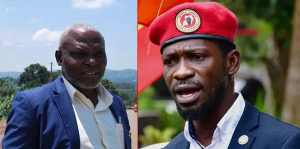Copyright trinidadexpress

A new voice has entered the soca universe, and she isn’t human. Jou Vay, the first AI soca artiste, made her debut this week with a single and music video titled “So Alive”, created by veteran director and producer Sheldon Mendoza, with executive production from Dave M David of VibeN8tion. With lyrics like, “If ah could be born I’d be born Trini, ‘cause only love could build this energy” and the catchy hook “Soca make me feel so alive” the digital singer has already ignited conversation online. But in a sacred arena built on human connection and ancestral vibration, will Jou Vay’s arrival be fully welcomed? Can code copy Carnival? Can AI build vibes? A new day for Jou Vay For Mendoza, the experiment was never about replacing the human element; it was about testing whether technology could amplify the joy and energy that already define T&T’s musical expressions. “Jou Vay was born from my desire to merge creativity, technology, and culture,” Mendoza told the Express on Tuesday. “My friend Mista David in Baltimore called me one day about trying AI for soca. I told him I was already thinking about it. Soca felt like the right place to start because I’ve lived it all my life.” Mendoza built “So Alive” using AI music tools like Suno for vocals, and platforms such as Gemini and HeyGen for visuals. The process, he said, was long and deeply intentional. “Every line, expression and melody was designed to make her feel alive, not artificial,” Mendoza said. “Her name came from Jouvert, the birth of a new day. It’s a word full of expression.” Still, Mendoza was careful about how far he let the technology go. “I treated her not as a machine, but as a reflection of our collective spirit,” Mendoza added. “The idea was never to make her pretend to be human, but to admire humanity, especially Trini humanity.” Mendoza’s project has drawn both praise and pushback. He remains clear about his purpose. “AI can’t create culture, it can only learn from it,” Mendoza reasoned. “Trinidad and Tobago’s culture is too powerful to ever be diluted. Jou Vay exists to amplify our voice, not replace it.” Mendoza also sees the project as a chance to level the playing field for young creators. “AI can help artistes write, produce and market their work with little to no budget,” Mendoza said. “A young creator in Enterprise or Parlatuvier can compete globally now. I want them to see AI as their collaborator, not their competitor.” Machel: I welcome it If there’s one person whose voice carries weight in any conversation about the direction of soca, it’s Machel Montano. For four decades, Double M has balanced innovation and tradition, testing sounds while keeping faith with the music’s spiritual core. To Montano, the arrival of an AI soca artiste is not a surprise, it’s inevitable. “I welcome AI into the music domain,” Montano said. “AI has been part of our lives for years, helping us with tasks behind the scenes. So, seeing an AI artiste in soca was only a matter of time. I always believe in using technology to enhance what we do, not replace it.” Montano explained his philosophy through an ideology he’s carried for years: the Triangle of Monk. “One side represents tradition and the knowledge of the elders, one side is technology and the enthusiasm of the youth, and the tip is truth, where both meet in the present,” Montano said. “AI is part of that balance. It can help us make smarter business, improve quality of sound, songwriting and production.” But Montano isn’t naive about what makes soca sacred. He sees the technology for what it is—powerful, but ultimately dependent on human spirit. “A computer is dead; it must be programmed,” Montano said. “Artificial intelligence learns from human intelligence and human experience. So, the frequency is still human. The objective is not to replace, but to enhance.” That belief comes from decades of watching the sound evolve and then return to its roots. “We’ve been turning back to live drums and bass, even the younger artistes like Voice and Farmer Nappy,” Montano said. “Technology alone doesn’t do it. You could hear a good Shadow song with just one horn and it moves you. That human touch can never be replaced.” And even as he urges balance, Montano believes the culture must stay open to exploration. “I like people to be free to do what they need to do,” Montano added. “The more people use AI, the more human work will stand out. You’ll always feel the difference.” Tentative Teja For Mical Teja Williams, the hottest young name in contemporary soca, Jou Vay represents both curiosity and caution. “It’s innovation rooted in tradition,” Teja said. “An evolution of our sound, not necessarily an intrusion, but a continuation of who we are.” Teja agrees AI can mimic emotion, but can’t live it. “The soul of soca comes from sweat, joy and community, things no machine can truly know,” Teja said. “We should collaborate with and regulate AI. Use it as a tool, not a replacement. It can expand creativity, but the heart of it all will always be human connection.” That balance between growth and grounding echoes Montano’s own message to the industry. “Use the technology wisely,” Montano urged. “Let it inspire you to go deeper into yourself. Compare great songs, learn from structure, use it to study chord progressions or lyrical ideas, but don’t let it do the feeling for you. Human work will always stand out.” The technical lens Producer Anson Pro (Anson Soverall), who has shaped hits for Nailah Blackman and others, wasn’t impressed with Jou Vay’s debut. “First of all, what even makes this an AI soca beat?” Anson said. “It’s really a reggaeton track that used a Latin prompt with some steelpan added and the speed turned up.” Anson believes the technology is still far from mastering soca’s nuances: “AI doesn’t do every genre accurately, it has to be trained. This one wasn’t. If a real artiste sang those lyrics, the industry would reject them immediately. But someone will get it right one day, and we’ll know when that happens.” Anson isn’t anti-AI, but he’s cautious: “We have to move with the times, but we also need to protect the rights of artistes and producers. Soca is still a very live performance-based industry. Until hologram technology can shell down a fete, I can’t see AI making real impact.” As the conversation around AI grows louder, Mendoza insists the goal is collaboration, not conflict. “AI is still being prompted by your ideas,” Mendoza said. “You hold the copyright because the soul still belongs to the human. The key is respect, for people, for culture, and for the roots of the music.” After all the debate, Montano brought the conversation home to the one truth that has guided his entire career. “AI will definitely become part of how we make music. It will make production faster and easier, but shortcuts don’t always make hits. In the end, it will lead us back to what was always there—the human spirit inside the sound,” Montano concluded.



